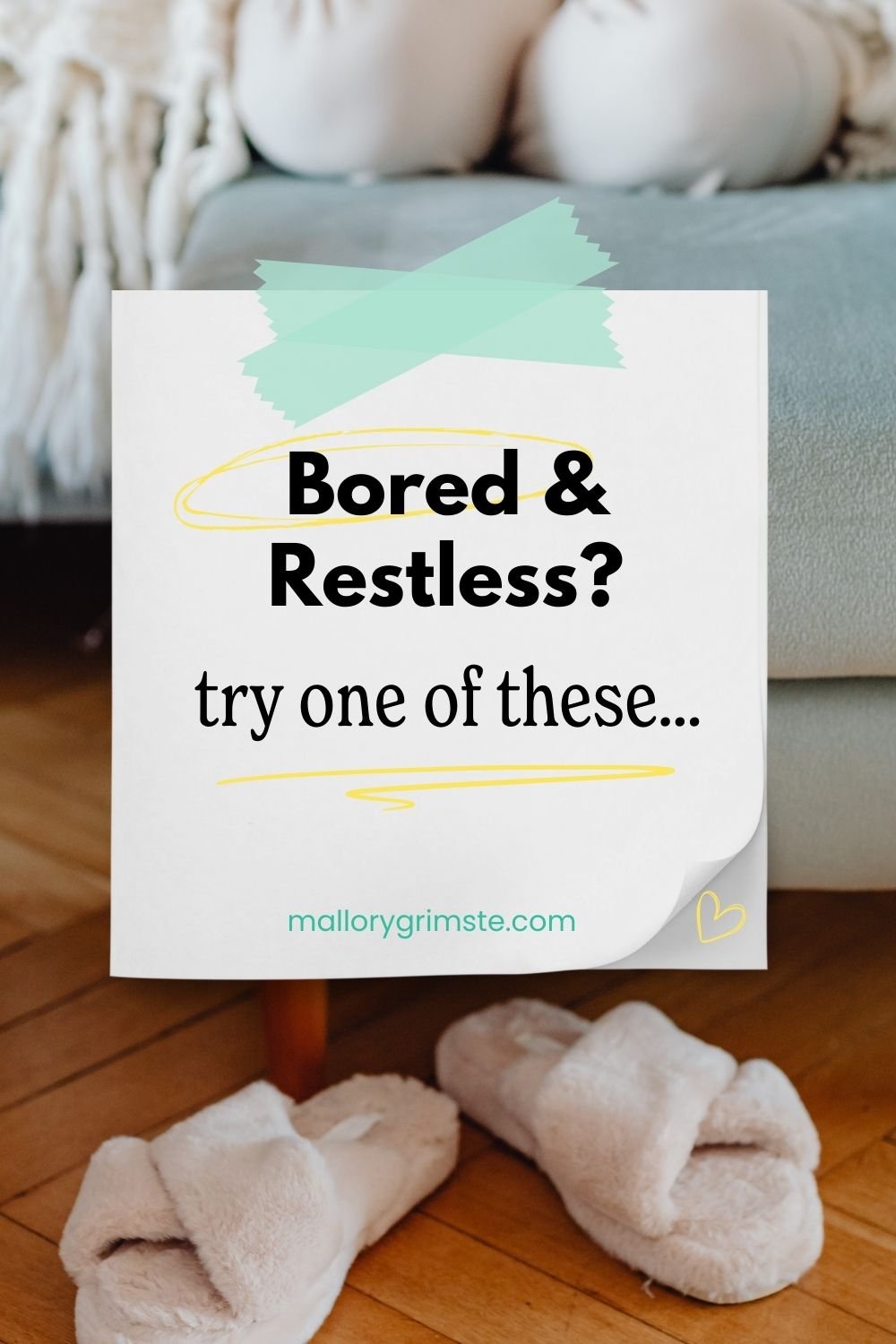50 Things to Do When You’re Bored at Home (And Why It Can Help Your Mood + Well-Being)
Feeling bored at home can be surprisingly uncomfortable, especially when it turns into restlessness, anxiety, or that “nothing sounds right” feeling.
This therapist-created list shares 50 gentle, doable ideas that help support your mood and nervous system when you’re stuck at home and not sure what would actually help.
I’m a Mental Health Therapist—Here’s What Actually Happens When You Cry in Therapy
Not sure what happens if you cry in therapy? You’re not alone—and it’s totally okay to feel nervous about it. In this post, I’m sharing what therapists really do when emotions show up in session (hint: it’s not what TV makes it look like). Whether you cry, don’t cry, or feel something in between—this one’s for you.
Therapy That Actually Works for You
Thinking about therapy but feeling unsure? You’re not alone! Starting therapy can feel overwhelming—especially if you’re worried about saying the wrong thing or wondering if it will actually help. In this guide, licensed therapist Mallory Grimste (serving CT & NY) breaks down exactly what therapy should feel like, what to expect in your first session, and how to find a therapist who actually understands you. Plus, get tips on using your health insurance to cover therapy costs! Read now to feel more confident about taking the first step toward real support.
🗣️ How to Talk About Your Feelings to Your Parents: 10 Therapist-Approved Communication Tips for Teens
Struggling to share your feelings with your parents? Express your feelings with these 10 practical tips for teens from mental health therapist Mallory Grimste. From opening up to your parents to finding the right words, she's got you covered!
😌☀️ Find Your Inner Peace: Navigate Your Summer Blues with Simple Self-Care
Struggling with summer blues? Discover practical, therapist-approved self-care strategies to find your inner peace and improve your mental health this summer.
Coping Skills Can Help You Control Your Life!!
Want to take control of your life as a teen? Learn how coping skills can help you thrive! Mental health therapist Mallory Grimste shares practical ways to manage stress and build resilience. Whether you're dealing with academic pressure, social challenges, or mental health concerns, these tips can help you feel more empowered and confident. This is a great resource for teens as they navigate life
My Journey from Stress Crier 😭 to Therapist 😌: How Self-Care and Coping Skills Changed Everything
Struggling with stress crying?? In this blog post, Mallory Grimste shares her personal experience and offers practical self-care and coping skills to help you manage your emotions. Learn how to control your stress crying and improve your mental health today. Don't miss out on Mallory's upcoming live hangout on April 14th, where she'll share 3 secrets to control your emotions like a therapist.
10 Quick and Easy Self Care Ideas for Busy Teens
Hey busy teens! These top 10 quick and easy self-care tips for busy teens can be easily squeezed into their packed schedules. Therapist Mallory Grimste shares her top ideas to help you prioritize your mental health. Improve your emotional regulation, energy, and focus. Make self-care a habit, even when you're busy, and get access to the Self Care Bundle. Take care of YOU, and sign up now!
Ignoring Your Feelings is a TERRIBLE idea (find out why)
Struggling with your emotions as a teen? It's common to push your feelings aside, but that can actually make things worse. Mental health therapist Mallory Grimste explains why ignoring your emotions is a terrible idea and offers helpful tips for dealing with difficult feelings using self-care and coping skills. Don't let your emotions control you - learn how to take control and feel better with these expert insights.
Helpful vs. Hurtful: 5 Things to Avoid Saying to Teens with ADHD
As a mental health therapist working with teens, these are a few things I'd love for you to STOP saying to teens struggling with ADHD. Because I think we can all agree that telling a teenager to "just focus" when they're struggling with ADHD isn't very motivating or helpful. In this video essay, I'm also sharing some helpful alternatives to say instead, too.










